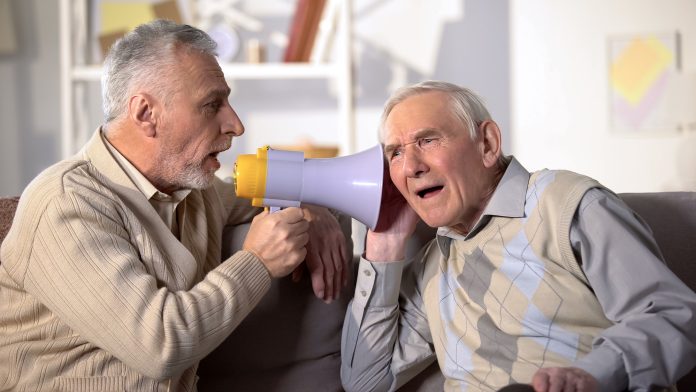Hearing loss is a prevalent issue among seniors, impacting their ability to communicate and overall quality of life. As people age, the likelihood of experiencing some hearing impairment increases, necessitating effective strategies to maintain clear and effective communication.
This guide aims to provide practical advice for seniors facing hearing challenges, their families and caregivers.
Understand Hearing Loss In Seniors
Before delving into communication strategies, it’s crucial to understand the nature and causes of hearing loss in seniors. Age-related hearing loss, or presbycusis, typically occurs gradually, often affecting both ears. Factors contributing to hearing loss in seniors include long-term exposure to loud noises, genetics, and certain medical conditions.
However, for a deeper understanding of hearing loss and professional advice, visiting reputable sources such as audiologists.org is recommended. These platforms offer valuable insights from experts in the field, ensuring seniors and their support networks have access to the latest research and strategies.
Implement Effective Communication Techniques
Implementing effective communication techniques is crucial for seniors with hearing loss to enhance their ability to connect with others and navigate daily interactions confidently and easily. Some effective techniques may include:
- Face-to-Face Conversations
Ensuring visibility is key in face-to-face interactions. Seniors with hearing loss rely heavily on visual cues such as lip-reading and facial expressions. Hence, it’s best to engage in conversations in well-lit areas and maintain eye contact to improve comprehension significantly.
- Minimizing Background Noise
Background noise can substantially hinder effective communication for those with hearing impairment. Choose quiet settings for conversations and turn off competing noise sources, like the TV or radio, to help minimize distractions.
- Clear Speech
Speaking clearly, at a moderate pace, and without exaggerating mouth movements can greatly aid understanding. It’s important to avoid shouting, as it can distort speech sounds and facial expressions.
- Rephrasing Rather Than Repeating
If something isn’t understood, rephrasing the message rather than repeating the same words can be more effective. This approach provides a new context that might be easier to understand.
Use Technological Aids And Adjustments
Utilizing technological aids and adjustments offers seniors with hearing loss innovative solutions to improve communication, ensuring they remain engaged and active participants in their social and personal environments. Some aids and adjustments include:
- Hearing Aids And Assistive Devices
Hearing aids are the most common solution for managing hearing loss. Regular consultations with hearing specialists can ensure these devices are optimally adjusted. Additionally, assistive listening devices can enhance the effectiveness of hearing aids in challenging environments.
- Telecommunication Devices
For phone conversations, amplified phones or captioned telephones can be invaluable. These devices increase the volume and clarity of the caller’s voice or provide real-time text captions of the conversation.
- Alerting Devices
Specialized alerting devices are designed for seniors with hearing loss, transforming auditory alerts into visual signals or vibrations. These devices ensure that critical notifications like phone calls, doorbell rings, and emergency alarms are promptly noticed, enhancing safety and connectivity in daily life without relying on sound.
Engage In Group Settings
Navigating group settings effectively is pivotal for seniors with hearing loss to remain connected and engaged. Strategically positioning oneself at the group’s heart maximizes the potential to catch more of the ongoing dialogue, leveraging the directional nature of sound to better capture conversations. Furthermore, openly sharing one’s hearing challenges with the group can cultivate an environment of understanding and patience.
This transparency prompts others to adopt clearer and more considerate communication habits, such as facing the senior when speaking and ensuring they’re part of the conversation, thereby enhancing the group interaction experience for everyone involved.
Invest In Education And Advocacy
Education and advocacy are the cornerstone of fostering inclusive and supportive communication environments. Enlightening friends, family, and acquaintances about optimal communication practices can significantly elevate the quality of interactions. Simple yet thoughtful adjustments can bridge communication gaps, such as by minimizing background noise, speaking directly to the person, and using clear visual cues.
Moreover, seniors with hearing loss should embrace self-advocacy, confidently expressing their needs for clearer articulation, repetition, or environmental adjustments. Such proactive communication fosters mutual understanding and respect, paving the way for more meaningful connections.
Take Advantage Of Emotional Support And Counseling
The journey through hearing loss is often accompanied by emotional challenges, including isolation and frustration from communication barriers. Accessing emotional support and counseling services can be a lifeline, offering a safe space to navigate these feelings.
Joining support groups specifically tailored for individuals with hearing loss can also be transformative, providing a platform to share experiences, strategies, and encouragement with peers facing similar challenges. This sense of belonging and community support is invaluable, helping seniors regain confidence and actively participate in social life despite their hearing limitations.
Ensure Continuous Learning And Adaptation
Staying abreast of the latest advancements is crucial in the dynamic landscape of hearing technology and communication strategies. Continuous learning opens doors to innovative solutions that can enhance daily communication and overall quality of life for seniors with hearing loss. Regular consultations with hearing care professionals enable personalized adjustments to hearing aids and other assistive devices, ensuring they meet the evolving needs of the individual.
Embracing adaptability and a willingness to explore new techniques and technologies can significantly improve the ability to navigate the complexities of hearing loss with resilience and optimism.
Conclusion
Navigating communication with hearing loss requires patience, understanding, and effective strategies. By keeping the information mentioned above in mind, seniors with hearing loss can continue to engage in meaningful conversations and maintain their quality of life. With the right approaches and a proactive attitude, communication barriers can be significantly reduced, ensuring that hearing loss doesn’t silence the valuable voices of the senior community.

























